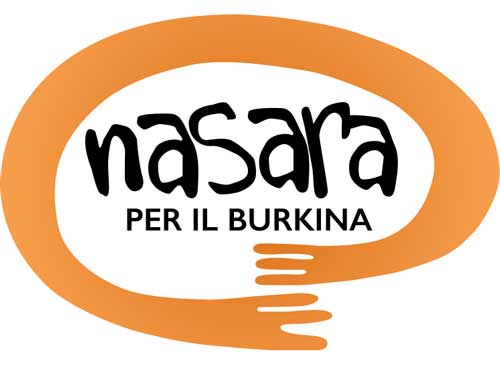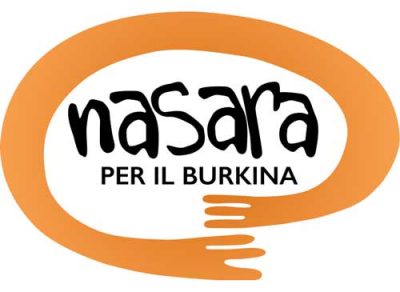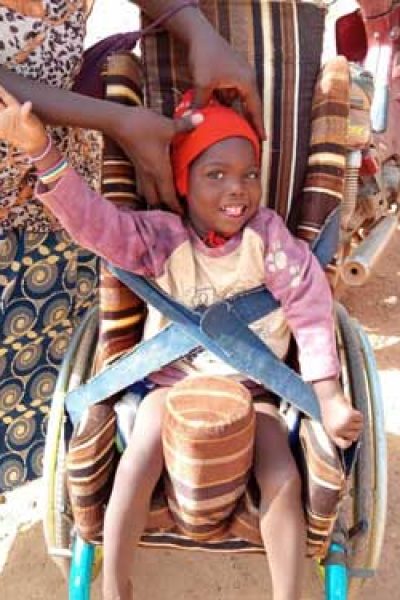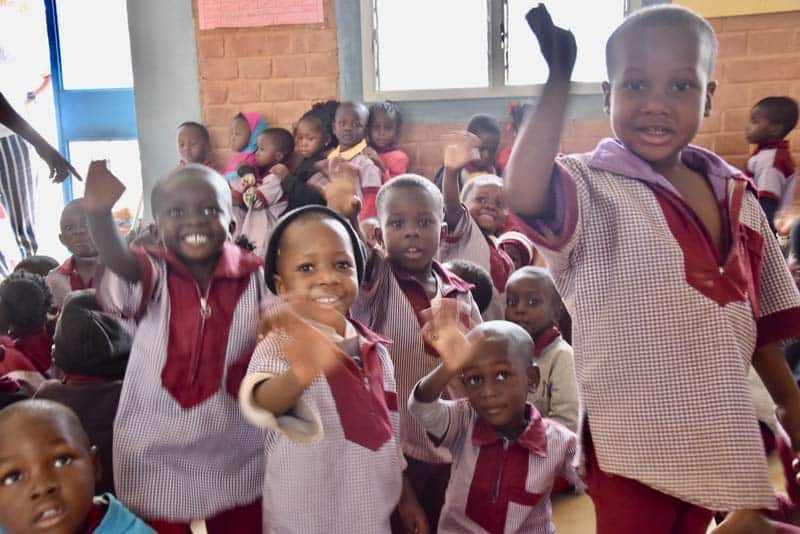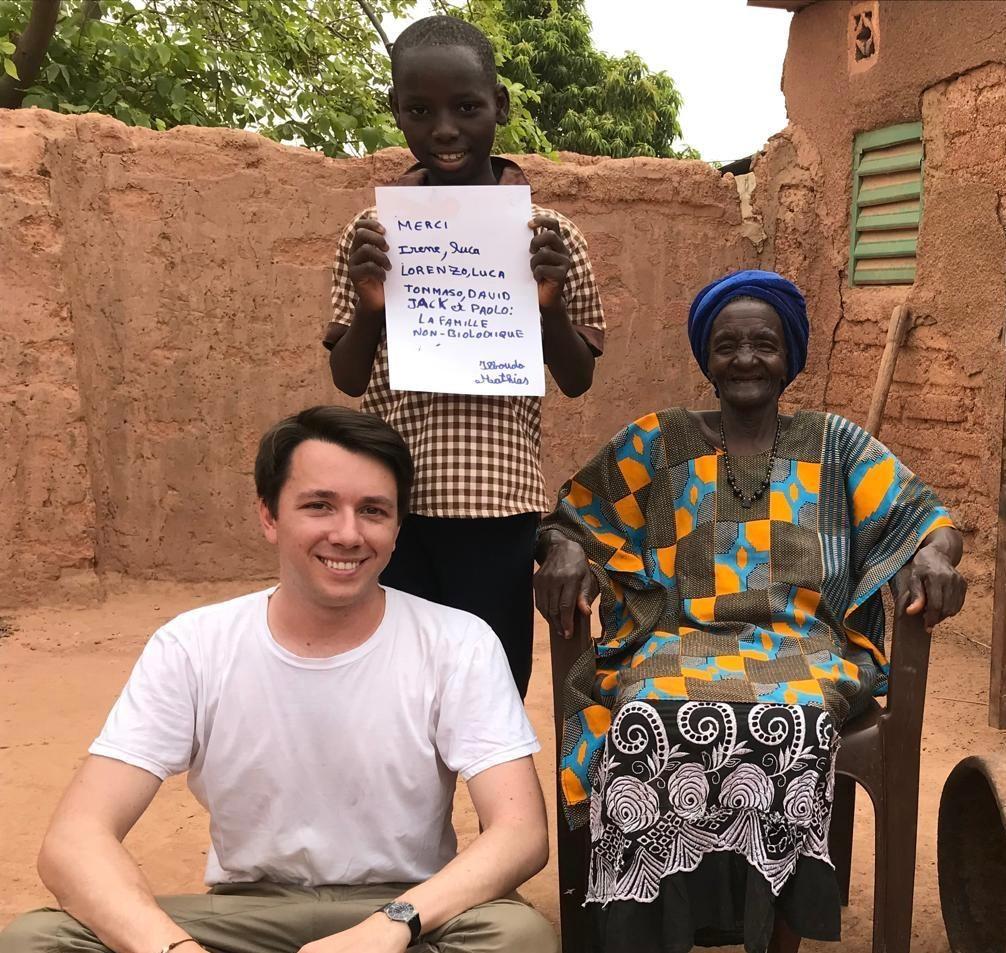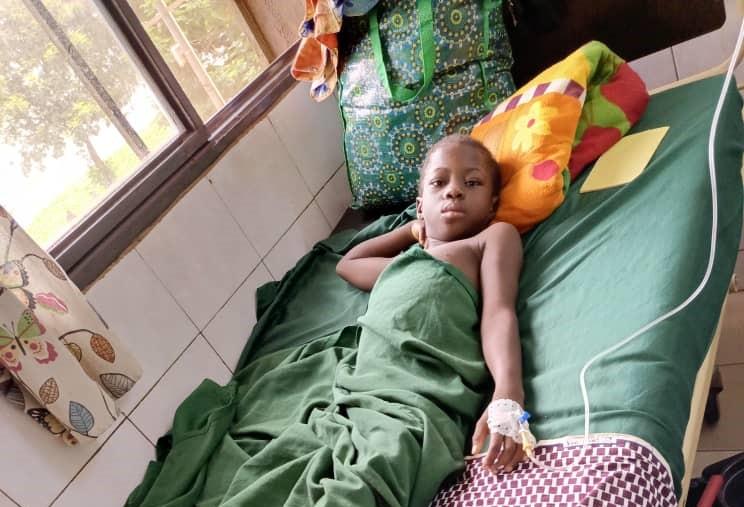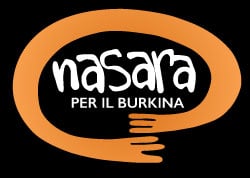Much has been written about Thomas Sankara, known as the ‘African Che Guevara’, and many still mourn him as a true revolutionary who could have dragged Africa out of its centuries-old economic isolation.
We find the following documents very interesting:
– RAI3 special by Silvestro Montanaro
– The famous Speech at the UN on 4 October 1984(transcript)
– Official website
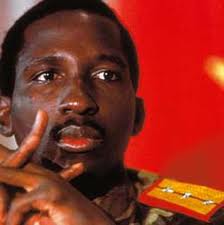
“For imperialism, it is more important to dominate us culturally than militarily. Cultural domination is the most flexible, the most effective, the least costly. Our task is to decolonise our mentality. “
(Thomas Sankara)
Captain Thomas Sankara was a very charismatic leader throughout sub-Saharan West Africa. He changed the name to Alto Volta and was the 1st President of Burkina Faso, and was very committed to radical reforms to eliminate poverty. These elements combined contributed to his being regarded and nicknamed as ‘the African Che Guevara’.
Born into a Catholic family in 1949, as a young man he was encouraged by his parents to approach the Church and take vows. According to some sources, he never lost his faith despite his Marxist convictions, while others claim that Thomas Sankara became an atheist.
He began his military career at the age of 19, in 1966, and was trained as an army officer in Madagascar, where he witnessed several uprisings in 1971 and 1972.
As a young man, he became very popular in Ouagadougou, the capital of Burkina Faso, partly due to his activity as a guitarist in a band. During the presidency of Colonel Saye Zerbo, he and other young officers formed a secret organisation called the Regroupement des Officiers Communistes (ROC), i.e. Group of Communist Officers.
Sankara became Secretary of State in 1981.
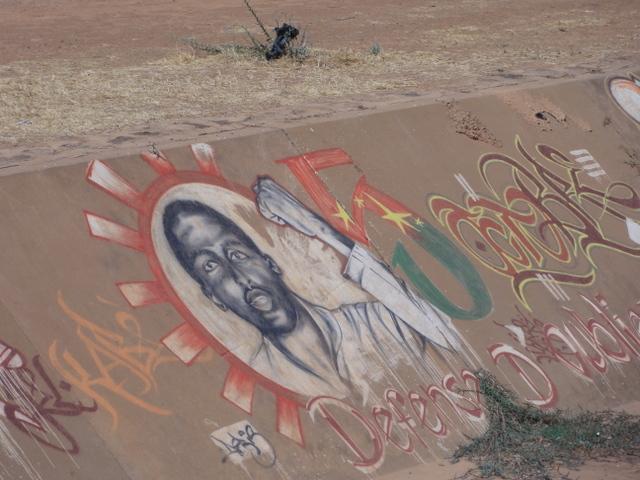
On 21 April 1982 – in opposition to the anti-labour drift of the regime – he resigned.
After a coup d’état in November 1982, which brought Jean-Baptiste Ouedraogo to power, Sankara became Prime Minister. He was soon dismissed from office and placed under house arrest following a visit by Jean-Christophe Mitterrand, son of the then French President François Mitterrand.
The arrest of Sankara and his other comrades caused a popular uprising, which resulted in a full-fledged revolution led by himself in 1983 and became president of Upper Volta, whose name was changed to Burkina Faso. Sankara’s goal was the cancellation of the international debt: cancellation could only be achieved if demanded in unison by all African nations. He was not successful. Instead, he succeeded in his goal of giving two meals and 10 litres of water per day to each inhabitant. Upon his death, Burkina Faso plunged back into the drama of poverty.
Sankara was killed on 15 October 1987 together with twelve officers in a coup d’état organised by a former comrade-in-arms. The plot was organised to allow heavily industrialised countries to continue to be able to draw on Burkina Faso’s natural resources at very low cost and thus be highly competitive on the international market.
Policy
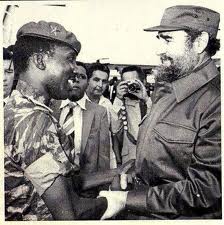
“I am speaking on behalf of the mothers in our impoverished countries who see their children dying of malaria or diarrhoea, unaware of the simple means that multinational science does not offer them, preferring to invest in cosmetic laboratories or plastic surgery for the benefit of the whim of a few men and women whose charm is threatened by the excesses of caloric intake in their meals, so abundant and regular that they make us in the Sahel dizzy. “
(Thomas Sankara)
His revolutionary policy was inspired by the examples of Cuba and Ghana. As President, he promoted the ‘Democratic and Popular Revolution’. The ideology of the revolution was defined by him as anti-imperialist in his Political Orientation Speech on 2 October 1983.
He fought against corruption, promoted reforestation, access to clean water for all, and made education and health the priorities of his government.
In a speech in Addis Ababa, Ethiopia, Sankara suggested the establishment of a new African economic front to counter the European and US economic front.
He suppressed many of the privileges held by both tribal chiefs and politicians, and through very clear statements and gestures, he applied his ideas with great consistency. For example:
- his government included a large number of women,
- condemned infibulation and polygamy,
- promoted contraception.
- He was the first African government to declare that AIDS was the greatest threat to Africa;
- He had health centres built in every Burkinabé village (Unicef called the vaccination campaign carried out on children the largest recorded in the world) and building sites for water works, creating a Ministry of Water;
- Sankara and his associates always travelled in economy class and at reduced ranks on diplomatic visits;
- sold most of the Mercedes cars in government and proclaimed the economical Renault 5 the official car of ministers;
- wanted to build the ‘Shael railway’, a line from Ouagadougou to the Niger border, despite the fact that many economists did not consider it a profitable project. This work, which was later extended, is still the main communication route in the country;
Other measures desired by Sankara were frowned upon by the imperialist powers, primarily the United States, which tried in every way to destabilise Burkina Faso to the point of helping the coup plotters to have him killed. Western countries thus helped to isolate the country economically, as they did with Cuba or other enemy states, hastening the violent end of the revolution in Burkina Faso.
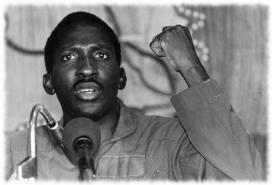
During a speech at the UN on 4 October 1984, he called for the suspension of Israel and the expulsion of South Africa from the UN
Bibliography
- Carlo Batà, The Africa of Thomas Sankara, Edizioni Achab Verona, 2003. ISBN 88-87613-09-5
- Marinella Correggia (ed.), Thomas Sankara, the rebel president, speeches translated by Marinella Correggia, Manifestolibri editions, 1997. ISBN 88-7285-150-5
- Valentina Biletta, Una foglia, una storia. Life of Thomas Sankara, Ediarco, 2005. ISBN 88-7876-021-8
- Thomas Sankara, I discorsi e le idee, edited by Marinella Correggia, introduction by Thomas Sankara, Sankara Publisher, 2006. ISBN 88-900-5724-6
- Vittorio Martinelli, La voce nel deserto, with Sofia Massai, preface by Jean-Léonard Touadi, novel, Zona Editrice, 2009. ISBN 9788864380018
This information on Thomas Sankara is extracted from Wikipedia
